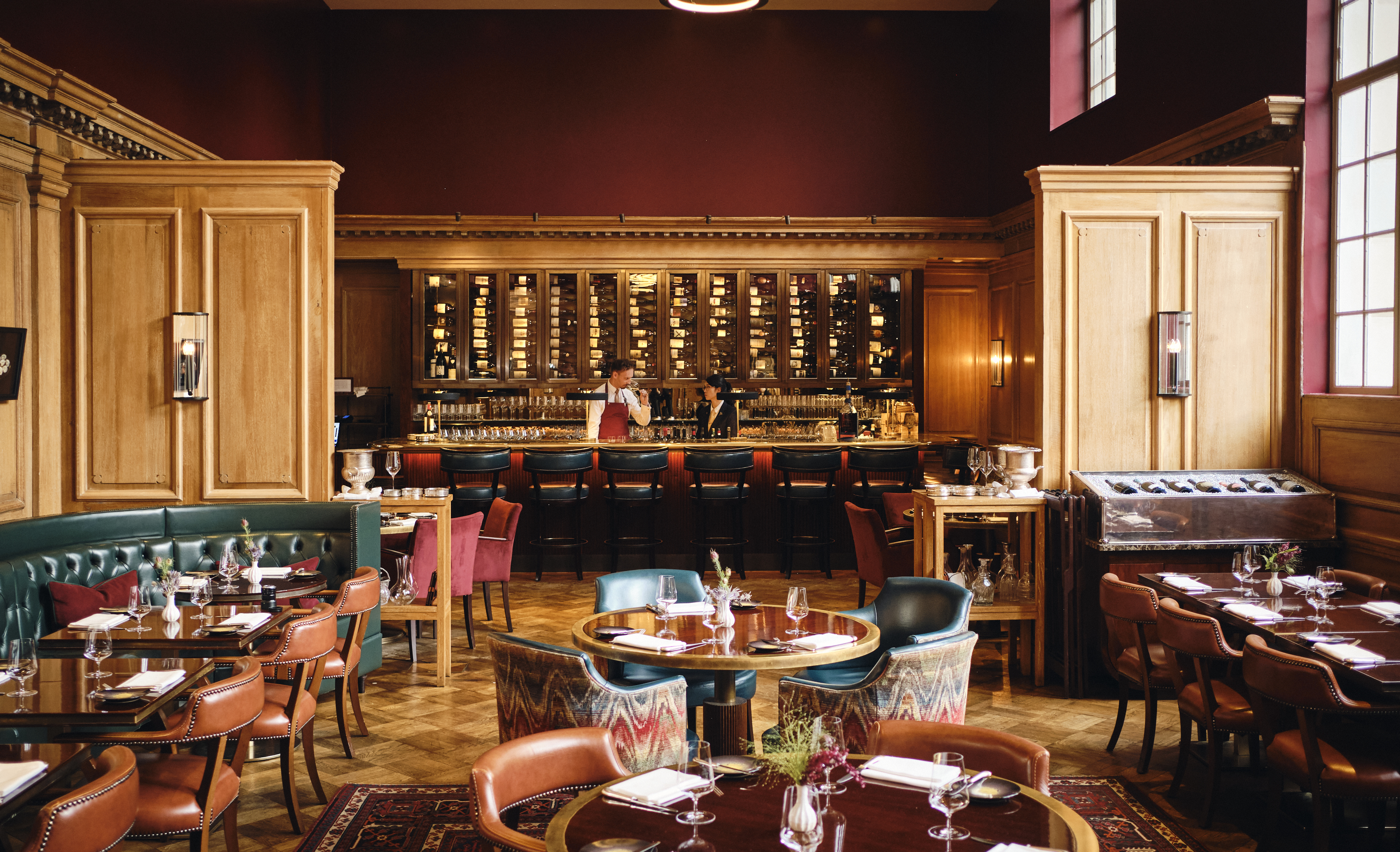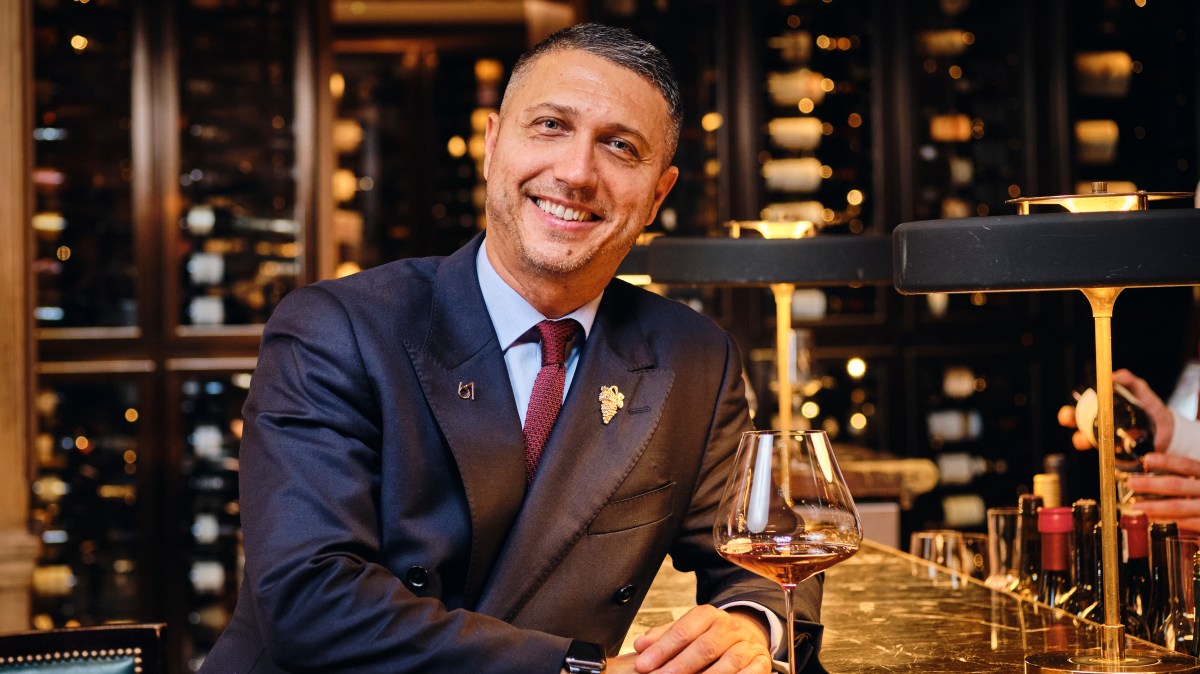Among the many qualities that make a good sommelier — a good nose, an ability to retain an encyclopaedic knowledge of vineyards and vintages, patience with indecisive customers — one doesn’t usually think of timekeeping.
Which is a good thing for Ranjeet Shirke, a senior sommelier at London’s most prestigious wine club, 67 Pall Mall.
“I was working in Cheltenham at the time,” Shirke tells me as the club fills up on a sunny Thursday afternoon.
“I was studying the night before the interview because coming to this club, I had no idea what to expect on the level of questions they would ask, and it was the place I wanted to be since I realised that wine makes me happy. So I just kept studying.
“And then I overslept, and missed my train — 7.30 in the morning. So I had to take a cab.”
A couple of hundred pounds later, Shirke got the job. He’s turned up on time ever since.
His journey to 67PM, as members call the club, is itself remarkable. Born in Mumbai, his hospitality career took him to Singapore, Dubai, back to Mumbai, then Bahrain and now London. He’s worked as a flair bartender and a waiter (“I dropped a whole tray of champagne glasses”) but it is wine that excites him, and in that he shares his passion with the members of the club.

The lounge bar at 67 Pall Mall
CHRISTOPHER L PROCTOR FOR THE TIMES
Opened ten years ago in 2015, 67 was the first new members’ club to arrive on Pall Mall in more than a century. It is built around wine, and members are encouraged to store their own collections in the club’s cellars.
Since opening in London the club has added sites in Singapore and Verbier, and now has plans to open in Beaune, in Burgundy, as well as Bordeaux, Melbourne and Shanghai. Shirke, and his boss Federico Moccia, the club’s head sommelier, match members’ wants and needs with the extensive selection.
It was in the cellars that Moccia himself started.
“Wine has always been part of my family, never fine wine but wine, going around. I worked for a company which made sparkling wine; I was working elsewhere in the company, but close enough to the wine to learn. At some point I was made redundant, and my sister’s best friend is English, and she said, well, who don’t you come to London.
“To me London has always been the place where all the best wine is, where the wine judging was, all that stuff. So I said, OK, let’s see what I can do in London.”

Moccia was a cellar-hand at 67PM before becoming a sommelier
CHRISTOPHER L PROCTOR FOR THE TIMES
Two pubs and a host of wine courses later, Moccia heard about 67PM opening. He wasn’t experienced enough for a sommelier job, but they offered him a cellar-hand job.
“We were just opening, so a new opening means everything is new — we’re getting cases and cases of wine. The cellar is two floors down and there we were two people.
“It was a lot of work but I was so excited. It was cases of Latour, Monfortino, Pétrus, DRC — all the greatest wine, wines that I used to study, and I had them in my hand.”
Eventually, Moccia started being able to snaffle a glass or two, and was promoted to a junior sommelier, out on the floor. Likeable and outgoing, he befriended everybody he could, all the while trying everything possible, and building up his knowledge. Years later, he is a walking encyclopaedia of global wine.
“It’s all about memories, I believe. So there’s pictures and I write down tasting notes in my online folder where I keep all the information, but the most important thing is your memory and the connection with people.
“So all this information? There’s a base, but what you learn is from talking with people every day, so that’s where I build my library.”

The opportunity to taste world-class wine is a bonus of the job
CHRISTOPHER L PROCTOR FOR THE TIMES
The pair are at home on the floor of 67, and know members by name — and taste. Their clientele here is demanding. But for others looking to get into wine, or intimidated by sommeliers, they have plenty of advice.
“For me, the best thing a guest can say is something simple like, “I enjoy this wine — could you recommend something similar or maybe something new I’d like?” You don’t need to use technical terms or know specific regions to have that conversation. Some of the most rewarding moments I’ve had have started with someone saying, “I don’t know much about wine, but I know I like this one.” That honesty is all we need to start guiding you in the right direction,” Shirke says.
Moccia echoes the sentiment. “You can describe things like: does it taste fruity? Is it dry or full-bodied? The more details you share, the better I can match you with something you’ll love,” he says.
As for the experts’ favourite wine? Shirke loves his sparkling; the Krug 2008 Clos de Mesnil his favourite.

CHRISTOPHER L PROCTOR FOR THE TIMES
The Brescia-born Moccia confesses his favourite comes from across the border in France, and he hasn’t forgotten a single thing about it.
“It was one of my first shifts as a junior sommelier at 67 Pall Mall when a member ordered a bottle of 2004 Domaine René Engel Grands-Echézeaux Grand Cru — the only bottle we had on the list. It’s an incredibly rare wine, especially following the passing of Philippe Engel in 2005; after that, the estate became known as Domaine d’Eugénie.
“This is the kind of wine that, if you ever come across it, you should buy and drink — it’s truly a piece of Burgundy history. I had read about René Engel but had never tasted one. It’s hard to put into words, but when I smelled it, I got goosebumps, and even more so when I tasted it: complex, ethereal, long-lasting — it was more than just a glass of wine, it was a journey.
“When I tasted it before serving at the table, the member noticed my excitement and generously offered me a glass. I kept it aside until the end of my shift, and then it was just me and the wine. I remember every sip I took — it’s a memory I’ll always carry with me.”
